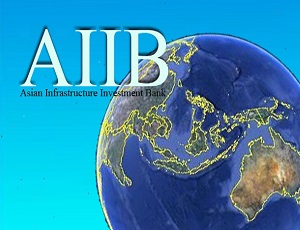U.S. Reluctantly Accepts China’s AIIB
The United States has said it has ‘secured’ commitments from China concerning the governance of the Asian Infrastructure Investment Bank (AIIB ). The Beijing led bank has attracted nearly 60 investing nations, including all members of the Association of Southeast Asian Nations (ASEAN) and half of the EU. The United States has declined to participate.
The Chinese commitment, made during President Xi’s visit to Washington, has stated that it would “abide by the highest international environmental and governance standards.”
![]() RELATED: China’s AIIB – The Facts To Know
RELATED: China’s AIIB – The Facts To Know
In addition to addressing US concerns, China has also agreed to provide increased funding to the World Bank’s International Development Association and the IMF. This meeting of minds concerning international development funding brings to close a somewhat embarrassing chapter for the United States. It had been somewhat vocal in its criticism of the AIIB, seeing it as a rival to the Washington controlled World Bank and the Japanese invested Asian Development Bank. Despite Washington calling for nations not to invest, many have, including the United Kingdom – long a U.S. partner but now one of the ten largest shareholders in the AIIB.
![]() RELATED: China Institutionalizes Eurasia For Silk Road Development
RELATED: China Institutionalizes Eurasia For Silk Road Development
The AIIB initial capital is some US$100 billion. Based in Beijing, the bank is awaiting clearance from some of the participating nations who require acts of parliament to be passed in their home countries to ratify the decision made to join the AIIB and provide funding to it. This process is expected to take 18 months, following which the project – and the eventual corporate make-up of the AIIB – will become somewhat clearer.
China meanwhile has been busy in institutionalizing development funding. Its US$40 billion Silk Road Fund has just made its first investment in a power plant in Pakistan, and its US$16 billion Silk Road Gold Fund has also been launched, in which member nations are funding gold and related mining exploration along the Eurasian route. Comprising similar members to the AIIB, the Gold Fund, which is housed under the Shanghai Gold Exchange, will facilitate purchases of gold for the central banks of member countries to not only increase their gold reserve holdings, but also improve their ability to raise capital.
|
Chris can be followed on Twitter at @CDE_Asia. Stay up to date with the latest business and investment trends in Asia by subscribing to our complimentary update service featuring news, commentary and regulatory insight.
|
![]()
 China’s Silk Road Economic Belt
China’s Silk Road Economic Belt
In this issue of China Briefing, we outline the fundamentals of China’s proposed new Silk Road Economic Belt. It begins by highlighting the overland route that encompasses Central Asia, and then details plans behind maritime and overland routes through South-East Asia. China is prepared to invest hundreds of billions of dollars in making this happen over the course of the next few decades.
 The Russia-Belarus-Kazakhstan Customs Union
The Russia-Belarus-Kazakhstan Customs Union
In this issue of Russia Briefing, we will assess the implications of the Customs Union on trade, looking broadly at the principles and progress of the union thus far, and clarifying key modifications to the VAT procedures for transactions involving the three member states. The content of this magazine was compiled by SCHNEIDER GROUP (RUSSIA CONSULTING) staff in Russia.
 The Cost of Doing Business in ASEAN Compared with China
The Cost of Doing Business in ASEAN Compared with China
In this issue of Asia Briefing magazine, we provide a comprehensive overview of the cost of doing business in China compared with the Association of Southeast Asian Nations (ASEAN). We analyze some of the key considerations that will impact upon the profits of an Asia-based business, including labor costs, social welfare, and industrial land prices. In addition, we take a look at how ASEAN’s export volume and GDP per capita currently compares with China.
- Previous Article China – Unmatched Opportunity, Unmatched Volatility
- Next Article IMF Warning – China To Experience Mass Corporate Bankruptcies

 By
By 







